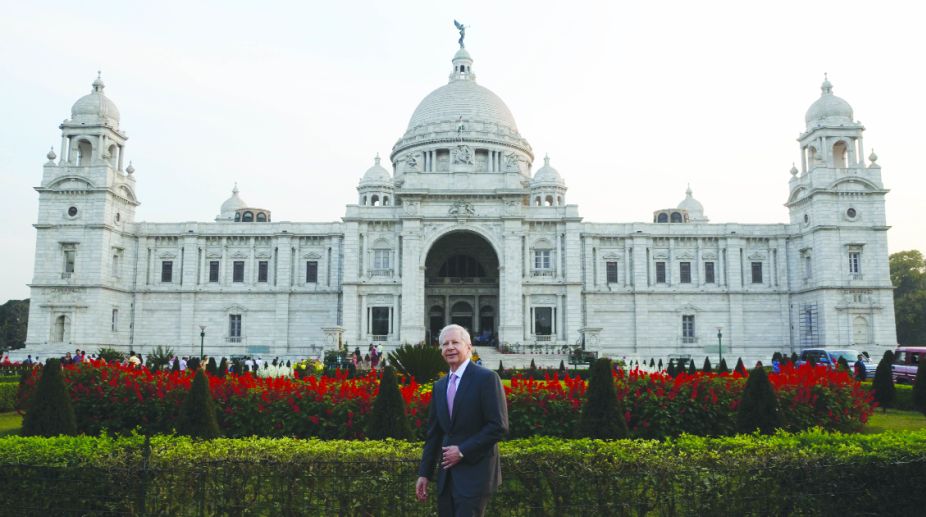The United States Ambassador to India, Kenneth I. Juster, on Wednesday stressed on further strengthening of strategic ties between India and U.S. in the Indo-Pacific region while broadening the spectrum of trade relations between both the countries.
Ambassador Juster on Wednesday speaking on Indo-U.S. strategic ties at an interactive session hosted by American Chamber Of Commerce, Eastern Region, and Bengal Chamber of Commerce and Industry, said “The strategic ties in the Indo-Pacific region between both the countries need to be further strengthened and the region should continue to remain free and open. The Pacific and Indian oceans are an essential link between our nations.
Advertisement
It rests on our shared interests in ensuring that the rule of law and democratic principles are reflected in a rules-based order. We want to guarantee freedom of navigation, over-flight and commerce, and ensure that territorial and maritime disputes are resolved peacefully in accordance with international law.”
The Ambassador’s statement comes in the wake of China’s militarization of the South China Sea along with the recent re-establishment of ties between China and Japan which are reportedly considered to be a threat to the much talked about quad group of India, United States, Japan and Australia in the Indo-Pacific region.
Ambassador Juster speaking further on this issue said “The U.S. Indo-Pacific strategy is a natural complement to India’s Act East Policy. Deeper commitment by both the countries to this region will work towards our growing defence and counter-terrorism partnership and moderate any policy differences that might arise along the way.”
Speaking on broadening and improving Indo-US trade ties, the Ambassador said “The United States is a major defence partner to India. We seek to assist India’s efforts to build up its indigenous defence capabilities, as well as enhance the inter-operability of our two forces as major defence partners in the Indo-Pacific region.” He further added “America First” and “Make in India” are not incompatible and both countries should rather invest in each other’s markets which will be mutually beneficial.
The American aerospace and defence major, Lockheed Martin, had recently proposed to manufacture custom built F-16 fighter jets in India which is considered to be a great opportunity for India to be a part of the world’s largest fighter aircraft ecosystem.
The initiative is also considered to pave way for a significant export market available for the Indian built fighter aircrafts. Commenting on the deal at the sidelines, the Ambassador said “It will be beneficial for both countries and will act as an economical boost. A strong foundation had already been laid for a strategic partnership that can have a significant impact on the 21st century and beyond. It is now time to build upon this foundation in a flexible but purposive manner.”
Talking about bilateral trade between the two countries, the Ambassador pointed out the trade between two countries has hiked up to 115 billion dollars in 2016 from 20 billion dollars in 2001.
“U.S environmental technology can play a key role in helping India address air pollution and energy efficiency. It could also help India address its food security and agricultural concerns.
“The U.S can offer India a comprehensive energy partnership. This includes all forms of energy- coal, crude oil, natural gas, nuclear power as well as technology related to fossil fuels, smart grids, energy storage and renewable resources”
“As far as travel, tourism and education is concerned, the U.S. National Travel and Tourism Office reported almost 1.2 million Indian visitors to U.S. in 2016 which is expected to grow to 1.4 million by 2022. The reported number of Indian students studying in U.S in 2016 was 186000 making India our second largest source of international students” said Ambassador Juster.











